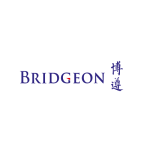Based on Bridgeon Law Firm’s overall solution for an overseas enterprise whose trademark was infringed 18 years ago, Bridgeon Law Firm explores how to file an invalidation declaration according to Article 44 of the Trademark Law against the infringed trademark and how to effectively protect its trademark rights for foreign enterprises who have been in China for more than five years before being aware of the infringement.
In the context of globalisation, many foreign enterprises have set their eyes and markets on China and apply for trademarks in China for brand protection. However, foreign enterprises find that their trademarks have been registered early by others in China at the time of trademark application.
According to the Trademark Law of China, it is impossible to execute prior rights and prior influence to invalidate the infringing trademark if the trademark has been registered over five years. Thus, Bridgeon Law Firm analysed in detail whether the infringement of Article 44 thereof, i.e. “registration by other improper means”, and win the trademark rights should belong to the right holder by virtue of effective investigation and evidence. The case is detailed below for reference.
Background
Since its establishment in 1958 in Japan, Kalita (Kalita) has been engaged in the design and production of coffee utensils for more than 60 years. From the beginning, Kalita has been using the trademark ‘Kalita’ corresponding to its trade name in the field of coffee appliances. Meanwhile, after long-term continuous use and extensive publicity, ‘Kalita’ trademark has become well-known to the relevant population in China.
Caisheng Coffee Tea (Beijing) (‘Caisheng’) applied for the identical trademark with ‘Kalita’ in China in 2004 and thus engaged in both online and offline marketing of coffee appliances. So far, the trademark has been used improperly for 18 years. Caisheng’s trademark dispute has seriously affected the operation and business development of Kalita, and is not conducive to the protection of IP rights in China.
The rights struggle between Kalita and Caisheng began in 2015 when Kalita’s application for a registered trademark in China was challenged by Caisheng. Since then, Kalita has fought for its trademark rights in China for years by virtue of various administrative and litigation means, but without success.
In 2021, the author filed an administrative lawsuit for invalidation on behalf of Kalita as the plaintiff. Through Kalita’s active cooperation in collecting relevant evidence, the author successfully adduced evidence for Caisheng’s violation of Article 44(1) “registration by other improper means” under the trademark law.
It finally proved that Caisheng’s lack of good faith and the use of ‘Kalita’ trademark had caused confusion among the relevant customers, and maliciously vied with other subjects for the prior use of the trademark. Kalita won the first instance, a milestone of Kalita’s rights protection over the years, and also the return of Kalita’s great efforts over the years.
Focus of dispute
The focus of this case is to prove that the application for registering the disputed trademark by the infringer Caisheng is a ‘registration by other improper means’ as referred to in Article 44(1) of the Trademark Law.
In accordance with Article 24 of the Provisions of the Supreme People’s Court on ‘Several Issues Concerning the Trial of Administrative Cases of Trademark Authorisation and Confirmation’, if a person disrupts the order of trademark registration, damages public interests, improperly occupies public resources or seeks improper benefits, the people’s court may agree that such situation constitutes the ‘other improper means’ stipulated in Article 44(1) of the Trademark Law. That is, this law not only protects the rights and interests of specific civil subjects, but also, more importantly, protects the normal order of trademark registration and social public interests.
Therefore, it is key to prove that the trademark registration of Caisheng has damaged the trademark registration order and social public interests.
Litigation strategy
For the purpose of this case, Bridgeon Law Firm defended Kalita based on the following:
The plaintiff is the holder of trademark right in ‘Kalita’, and its trademark has been used with certain popularity and influence, and the behaviour of Caisheng damages the legitimate rights and interests of the plaintiff.
First of all, it is proved that ‘Kalita’ is a brand of coffee utensils independently designed and created by the plaintiff by providing a large amount of use evidence, and its logo adopts self-created fonts and artistic expressions, which is remarkable and original.
After years of use, the plaintiff has gained a certain popularity and influence in the coffee appliance industry and has formed a unique and stable correspondence with the plaintiff.
It is hardly a coincidence and good faith that Caisheng applied for the use of a trademark identical (including English word composition, font, artistic design, or pronunciation) to the plaintiff’s on the same product.
The relevant evidence provided by the plaintiff has shown the confusion and misunderstanding among competitors and consumers in the same industry on account of the infringement.
According to the relevant evidence collected by Bridgeon Law Firm, in addition to the plaintiff, other third party subjects mistook the ‘coffee cup’ products produced by Caisheng for the plaintiff and intended to sue it for infringement of patent rights, which shows that Caisheng’s use of the trademark at issue has caused confusion and misunderstanding among competitors and consumers in the same industry.
With regard to the trademarks applied for registration by the infringer, based on the investigation and evidence adduced by our lawyers, Caisheng has not only damaged the interests of the plaintiff, but also reproduced and copied the trademarks of many other subjects, which damaged the order of trademark registration and social public interests.
Bridgeon lawyers believe that the above two points alone are insufficient to prove that Caisheng violates the provisions of Article 44(1) of the Trademark Law, from the perspective of protecting the order of trademark registration and social public interest.
By analysing the trademark registration applied for by Caisheng, it is found that Caisheng has total 10 trademarks under their names, in addition to the ‘Kalita’ trademark which should be the property of Kalita, and have further applied for the registration of ‘Iris’, ‘Tiamo’, ‘Venezia’ and other trademarks.
According to Article 17.3 of the ‘Guide to the Trial of Administrative Cases of Trademark Authorisation and Confirmation’, the specific circumstances of ‘registration by other improper means’ are identified as follows: the applicant of the trademark at issue applies for registration of multiple trademarks same with or similar to any trademark with strong distinctiveness or high reputation of different trademark right holders for the purpose of the same or similar commodities and services.
After detailed investigation and analysis of the above trademarks, it is evident that these trademarks are all used by foreign enterprises and have certain influence, and are coffee and coffee appliance brands with high popularity. The trademarks applied for by Caisheng are identical to these trademarks. We may take one for coincidence, however, four identical trademarks are not reasonable, which proves that Caisheng has the intention to take advantage of others’ goodwill and seek improper commercial benefits.
Based on the above facts, Caisheng’s application for registration of the disputed trademark has damaged the legitimate rights and interests of the plaintiff, disturbed the normal management order of trademark registration, undermined the market environment of fair competition, and constituted the ‘registration by other improper means’ as stipulated in Article 44(1) of the Trademark Law.
Conclusion
When foreign enterprises in China are faced with a situation where a trademark has been preemptive registered for more than five years, it is often difficult to prove that the infringing trademark is registered by other improper means according to Article 44 of the Trademark Law.
This case is of great significance for foreign enterprises to defend their rights in China, and provides a solution for the same type of cases - that is, starting from the trademark registrations under the name of the infringing party, and arguing to find out whether it has early registered other party’s trademarks, so as to find a breakthrough to prove that it has reproduced, imitated or copied a large number of trademarks.
This is an opportunity to prove that the infringer has copied, imitated or plagiarised the prior well-known or highly distinctive trademarks of multiple subjects and disturbed the trademark order and social public interests.

Youping Ma
Founding partner
Bridgeon Law Firm
Youping Ma is a founding partner of Bridgeon Law Firm and is a Chinese attorney-at-law as well as patent attorney.
With 20 years of experience dealing with both domestic and international patent matters, Youping has worked on many high-profile infringement litigation and invalidation cases. She has been entrusted with numerous duties by professional institutes including Beijing Lawyers Association. She has been a frequent public speaker on IP related forums such as the 2019 AIPPI World Congress and China DRM Forum.
Youping earned a dual degree in Computer Science and Law from Peking University.

Abbie Li
Attorney-at-law
Bridgeon Law Firm
Abbie Li is a Chinese attorney-at-law experienced in managing matters before the Trademark Office of China National Intellectual Property Administration (CNIPA), having filed and prosecuted trademark applications, disputed office actions, oppositions, case reviews, invalidations, and licensing for a variety of brands. She has also advised in cases related to assignments, recognition of well-known trademarks, and general legal consultancy.
Abbie has significant experience managing clients' global trademark portfolios and has managed trademark filing, prosecution, maintenance and enforcement in Europe, South Korea, Japan, India, America and Australia.













